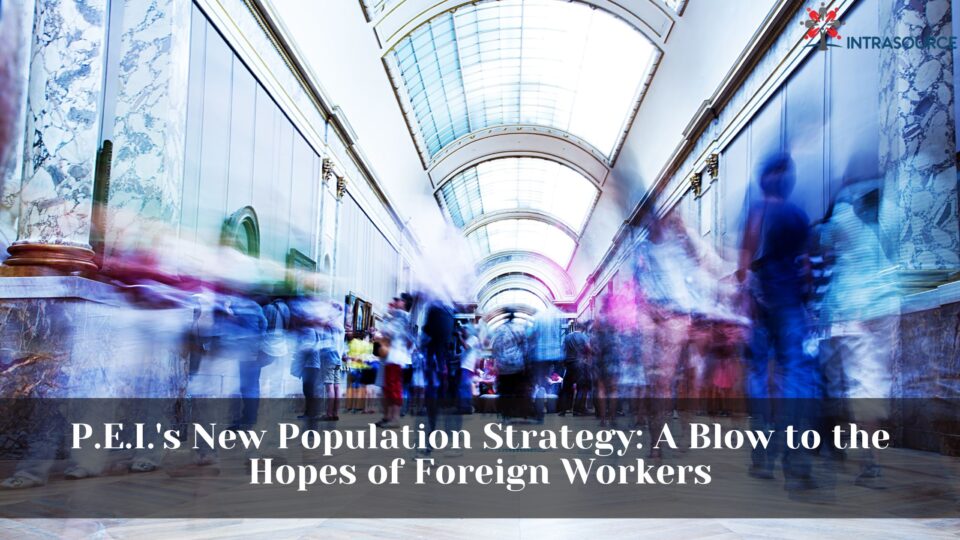The picturesque province of Prince Edward Island is currently facing a tide of concern from its foreign worker community following a drastic shift in its immigration strategy. Recent changes announced by P.E.I.’s government signal a reduction in the number of nominees for permanent residency by a significant 25 percent in the year 2024. As part of the province’s fresh approach to managing population growth, this decision aims to alleviate pressure on essential services such as health care and housing. However, for many hopeful immigrants, this has cast a shadow over their Canadian dream.
Anxiety Among Foreign workers in Canada
Monika Dablehar and Hardeep Singh, two Indian nationals working in Prince Edward Island, embody the apprehension that now grips foreign workers across the island. After moving from Ontario where they completed their studies, both secured employment within the service sector. With a firm goal in sight—to obtain permanent residency (PR) and forge long-lasting roots in Canada—they are now faced with an unexpected hurdle.
The emotional toll is palpable; Dablehar expresses sleepless nights and constant stress, while Singh recalls the disruptive impact on his sense of security when the policy was unveiled.
A Shifting Focus
The shift in focus for PR nominations now heavily prioritizes industries deemed critical, such as health care, child care, and construction. This leaves those in sales and service positions—despite fulfilling employment prerequisites—outside the qualifying bracket. Specifically, nomination opportunities for these sectors have been slashed from 855 to just 215 within a year.
Charlottetown immigration consultant Kelly Hamilton highlights just how starkly chances have dwindled. Where securing PR once seemed assured for full-time service sector workers meeting provincial nominee program standards, they now face closed doors.
An Uncertain Future
Amidst these changes stands a real dilemma for Dablehar and Singh; with expiring work permits on the horizon and their experience confined to service roles, options are scarce. The feasibility of acquiring new skills is made all the more challenging without adequate time or financial resources.
The stark reality is that individuals like them, who have already begun planting roots and establishing community ties within P.E.I., are experiencing tremendous uncertainty about their future on the island.
The recent shake-up in P.E.I.’s population strategy thus presents not only policy implications but also profound personal challenges and decisions for foreign workers striving for permanence in Canada’s smallest province.
Across Canada, there are hundreds of thousands of people on work permits hoping to get their permanent residency, Kurland said, at a time when most provinces are changing their rules and cutting back on nominations.
Immigration Policy Changes Leave Applicants in Limbo
“It’s a numbers game, not a people game,” he declared, addressing the concern head-on.
Amidst rising contention comes the prospect of a political solution. Authorities suggest that it remains within the realm of possibility to protect current applicants by announcing impending policy modifications ahead of their 2026 enactment. Such a move would offer a proverbial ‘heads up’ to those already in the process. However, this preventive step has been notably absent, leaving many to face the disheartening prospect of unfulfilled expectations.
The provincial government of Prince Edward Island has labeled its recent amendments to immigration regulations as temporary. Yet clarity is amiss, with no definitive timeline or criteria for reverting to prior policies provided.
The statement released by the government to CBC News acknowledged that even before the temporary action, the sheer number of applications was overwhelming. The existing infrastructure and nomination protocols were inadequate for effectively processing this volume.
Time is running out for Dablehar and Singh, along with many others in their position. Dablehar voices his hope, urging consideration from the government to adapt their stance on the rulings in favor of those deeply affected by these changes.


